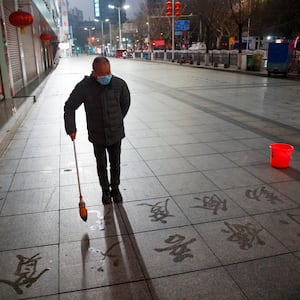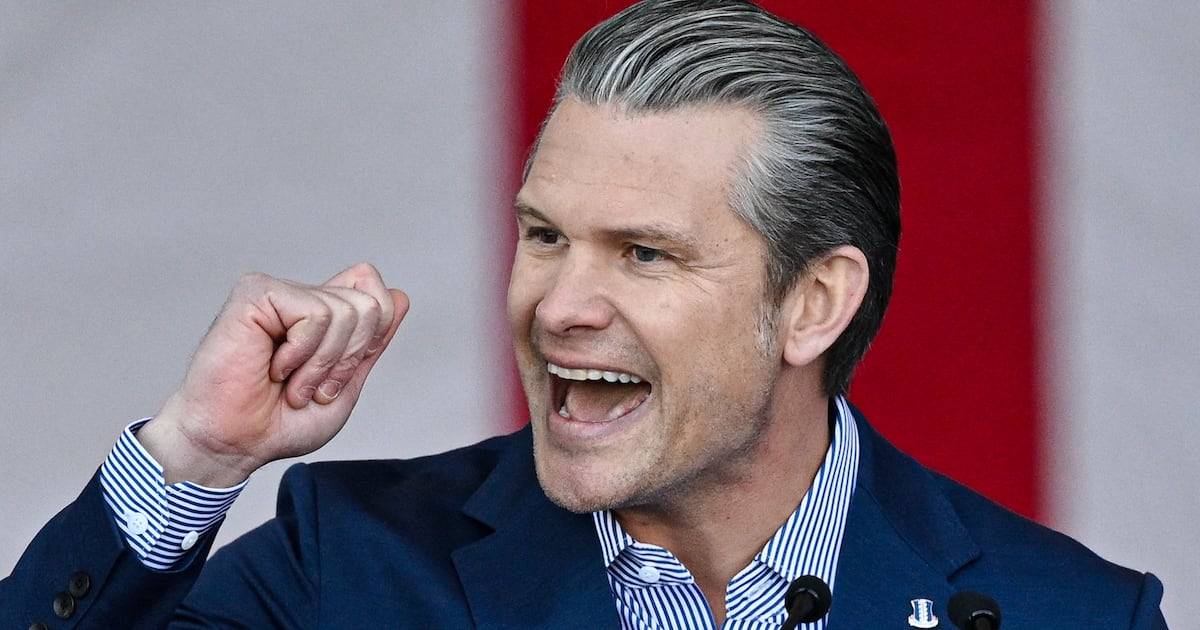Rideshare drivers across America are panicking about how to keep themselves safe from the cascading threat of the coronavirus outbreak while still making a living.
Earlier this week, Uber announced it had suspended two drivers in Mexico City after they transported a passenger later diagnosed with coronavirus. Those drivers had picked up 240 other passengers deemed at risk of infection. Uber suspended the accounts of everyone involved for two weeks, the virus’ incubation period, and said it would continue to monitor the situation.
But Uber and Lyft haven’t issued public guidance on coronavirus generally, and it’s unclear if the tech companies have proactively been in touch with drivers directly, whether to warn them or allay their fears.
Meanwhile, things are getting ugly.
In Facebook groups populated by Uber and Lyft drivers, recent posts have run the gamut from pleas for calm to inquiries about protection from infection to straight-up racist advocacy against picking up any “Chinese” passengers at all.
Edgar Diaz, who has driven Uber in San Francisco and the surrounding area since 2015, said he called the company’s support team in the middle of last week for help with his malfunctioning driver’s app. While he was on the phone, he asked what he could do to protect himself from coronavirus.
“They basically said to stay hydrated, wash your hands, wear a face mask if there’s coughing either from you or the passenger,” he said. The company didn’t offer any specific advice on coronavirus, he added.
He left the call frustrated that receiving such simple, generalized advice required him to call Uber, rather than the reverse.
“That wasn’t good enough. Whenever there’s a service shutdown or surge pricing, they let people know. They’re quick to do that. Why not use that system and send a courtesy reminder to riders and drivers? But they don’t,” he said.
Diaz said he contracted the flu from a passenger in 2019, which kept him from driving for three weeks. He’s started spraying his car with disinfectant after each shift.
“People will take rides anywhere if they feel sick. I’ve taken people who are coughing, sneezing, basically dying in my car,” he said. “Uber should send out a mass email or text to tell people if they feel sick to stay isolated. That’s what I’d say in order not to spread anything.”
Such fears are based at least in part in reality. As of early Thursday, the new strain of coronavirus had infected more than 27,000 people in China, killed over 500 people there and another person in both the Philippines and Hong Kong, and resulted in a government-mandated quarantine of more than 50 million people. Health officials had also confirmed 12 cases in the United States.
Justin Vitcov, who’s driven for Lyft for a year in Silicon Valley, said he hadn’t heard from the company about whether he’s at risk or how to safeguard himself, though travel from China to the U.S. is now severely limited. But he’s going to continue driving.
“Every cough puts people on edge right now,” he told The Daily Beast. “But I’m not that worried about it! I’m not shaking passengers’ hands, and it doesn’t seem like it’s something I need to worry about unless someone’s coughing and getting phlegm all over the seats.”
Some in driver Facebook groups claimed they had stopped driving altogether for fear of coronavirus. Vitcov scoffed at that.
“People tend to overreact until there’s more knowledge,” he said.
Vitcov was confident Lyft would take action when appropriate. Until the company does intervene, he said, he wasn’t planning to wear a face mask while driving.
Still, he recalled picking up a man he described as covered head-to-toe in clothing on a warm day—including a sweatshirt the same sky blue as the man’s face mask—en route to Google in Mountain View. The getup made another passenger already in the car tense up, according to Vitcov.
“The tension was palpable,” he said.
One couple Vitcov picked up Friday, a man and a woman, were on their way to the airport so the woman could travel to China. He said it was apparent they didn’t know when they would see each other again. The State Department’s urgent advisory against travel to China went into effect that same day.
In a statement, Lyft spokeswoman Dana Davis told The Daily Beast, “Like many organizations worldwide, we are monitoring official updates on the global outbreak closely, and taking our cues from international and domestic public health experts.”
In some cases, confusion over how to protect from infection is surfacing raw prejudice. Some passengers have reported remarks from drivers that echo a larger pattern of behavior discriminating against people who appear to be of Asian descent since the outbreak began.
<p><em><strong>Do you work for a ride-sharing company or know something about them that we should? Contact this reporter at blake.montgomery@thedailybeast.com or from a secure device at blake.montgomery@protonmail.com.</em></strong></p>
Sentiments like these appeared to be having an effect on rides from California to New York.
On Sunday evening, Lillian Wang returned to San Francisco from Cabo San Lucas only to have an experience with Lyft that left her unsettled, to say the least. A friend, Katie Schoolov, called a car for the two of them, Wang recalled. But when she approached the door after depositing her luggage in the trunk, the driver didn’t open it until Schoolov, who is white, came around, according to Wang. She said she didn’t start to consider the possibility of discriminatory behavior until the driver asked if the two women had traveled to China. When they said no, the driver mentioned he had rejected a ride request from someone with the name “He,” a common Chinese name, and other would-be passengers, Wang said.
The idea that her name and ethnicity made her appear more likely to have a disease offended her. Schoolov reported the driver, and Wang said the company removed him.
“Screening entirely on ethnicity is 1) not very ethical and 2) probably not very effective. I’m not more likely to go to China than Katie is. It’s not a moral thing to do,” Wang told The Daily Beast.
She urged Uber and Lyft to get in contact with drivers to disseminate accurate information.
“I’m curious what the narrative is within these communities [of drivers] and also how the companies are communicating to their drivers,” she said. “This is the time the companies with employees that might be exposing themselves should be communicating certain information and providing resources.” (Uber and Lyft drivers are currently classified as independent contractors, though that status is up in the air at the moment due to recent passage of California legislation that may reclassify them as employees.)
Lyft’s Davis said in a statement, "We take any allegation of discrimination very seriously and investigate all incidents. Lyft has a long-standing commitment to maintaining an inclusive and welcoming community, and discrimination against riders or drivers can and has led to deactivation.” Uber did not respond to a request for comment for this story.
For her part, Octavia Philips, who was taking a Lyft ride from Roosevelt Island to Brooklyn’s Chinatown late Friday night, said her driver spouted derogatory conspiracy theories about coronavirus’ connection to animals Chinese people eat, and snakes in particular. Phillips, who is white, said she tried to redirect the conversation. She said she found it “kind of appalling” but didn’t report the interaction to Lyft, not wanting to endanger the driver’s livelihood.
Wang had similar qualms about Lyft’s banishment of her driver.
“I don’t know if removing him was the right move,” she said, adding, “I don’t think he’s the only driver doing this by any means.”








